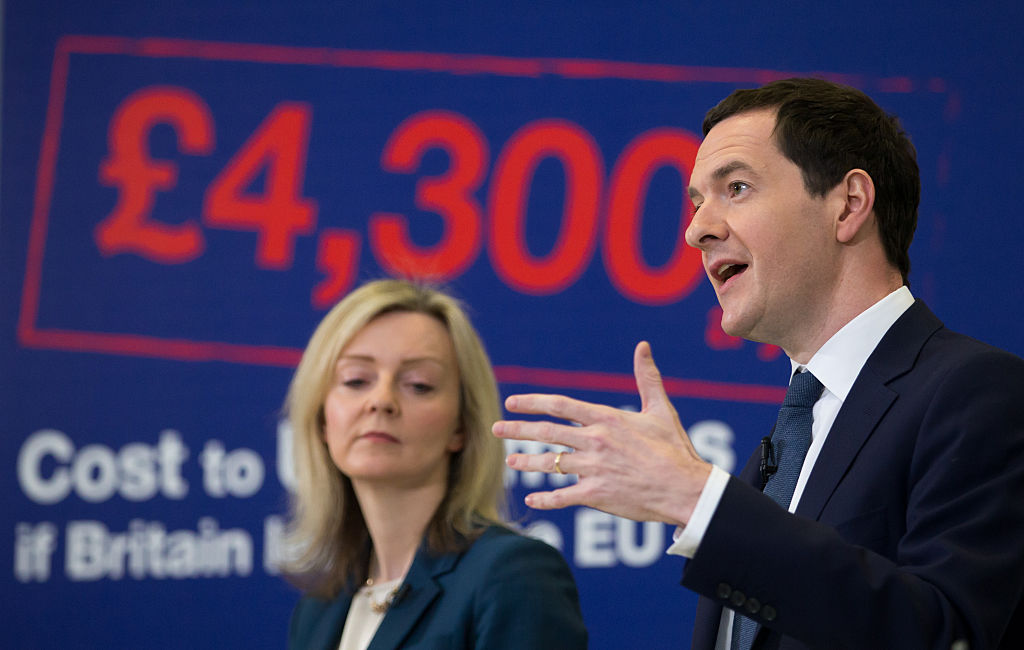It is another black day for Project Fear. The latest employment figures from the Office of National Statistics (ONS) show yet another fall in unemployment, to 1.36 million or 4 per cent of the adult population. There have never been more people employed in the UK economy, and the unemployment rate is at its lowest since early 1975.
It wasn’t supposed to be this way, according to George Osborne’s crystal ball. In May 2016, a month before the referendum, he warned us all that should we vote to leave the EU we could expect unemployment to rise by up to 500,000 within two years. Admittedly, George himself has bagged a few jobs since then, but I don’t think his work ethic is wholly responsible for the rise in employment. He was simply wrong – and neither he nor hardly any of his fellow Remainers can quite bring themselves to admit it. Rather, they keep on pumping out gruesome predictions in the naïve hope that we will forget their past record.
There are some other features of this month’s employment figures which require examination. First, they reveal a sharp drop in the number of people employed on zero hours contracts – which have fallen by 104,000 to 780,000 over the past 12 months. That is going to make it harder for Labour to complain about ‘zero-hours Britain’, and to claim that rising employment has been bought only at the cost of more job security. On the negative side (for workers), however, falling unemployment has not been accompanied by rising real wages. Including bonuses, pay increased over the year by 2.4 per cent – a real-terms increase of just 0.1 per cent. The assumption that a tight labour market increases employees’ bargaining power and therefore leads to higher salaries is, for the moment, proving to be wrong.
The figures also show a remarkable change in balance between EU and non-EU workers – something which we are likely to see a lot more of after Brexit. The number of EU nationals working in Britain fell by 86,000 over 12 months, yet this was nearly made up for by an increase of 74,000 in the number of non-EU nationals working in Britain. Post-Brexit, and depending on the final deal with the EU, the UK government may well be free to set its own migration policy. That could change the picture substantially. But for the moment, the vote for Brexit doesn’t seem to have done much for those who want overall migration to fall. It does, on the other hand, seem to have partly corrected an unfairness which has bothered many voters and which inspired some of Ukip’s black and Asian members to join the party – the discrimination in favour of unskilled migrants from the EU at the expense of skilled migrants from elsewhere. Quite how the Brexit vote has achieved this, when we haven’t yet left or changed our migration policy, is hard to fathom.







Comments